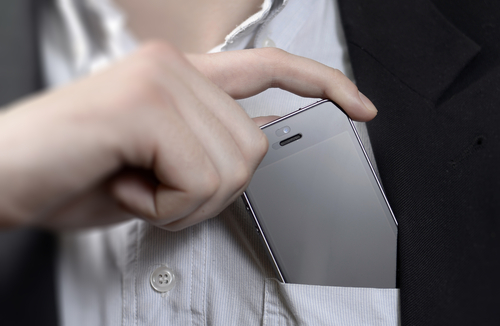The speed at which technology continues to reshape the business landscape remains unimpeded. In many companies, including hotels, employees and management understand mobile technologies can be wielded far more rapidly and efficiently than traditional, wired desktops. So what’s keeps these organizations from pushing into this new hardware world?
Cue the limited annual departmental hotel technology budget. “The hospitality business model is characterized by high fixed-costs and variable income. Fluctuations in occupancy and room-rate demand tight budget control… A hard equation to balance.” (Asia Tech Directions)
Continuing evolution in computer hardware and software often make it necessary for a hotel group to replace its entire computer infrastructure on a periodic basis – and with a tight budget, this is not always a viable option. However, with the introduction of a BYOD (bring your own device) policy, industries are beginning to recognize the increasing trend of allowing employees to bring their own device to work (smartphone, tablet and/or laptop), which would help solve some budget issues.
Companies that already have a BYOD policy in place have reported numerous benefits including higher employee satisfaction (61%), reduced training time, increased usability and increased productivity. 70% of employees with smartphones regularly check their emails outside of normal business hours with 43% connecting to their emails on their smartphones in order to get ahead and ease their workloads for the following business day. According to a new Gartner report, about half of the world’s companies will enact BYOD programs by 2017 and will no longer provide computing devices to employees. With 66% of employees wanting IT to let them use their own devices, whether it is their phone, tablet or laptop, it sounds like a “win win” situation.
But it’s not all clear sailing – 46% of IT workers say they are not prepared to support a borderless mobile workforce and voice concern over risks such as dealing with device liability, data security and an increased workload to handle all the devices on the network. However the introduction of a BYOD policy doesn’t have to mean, “letting go” of essential control “but it does mean providing a framework for users to bring their own mobile devices to work in a safe manner, including use of apps with business data under certain prescribed conditions. This unleashes choice and innovation and vitally, splits the work of adoption and rollout with users that want to use their favorite mobile devices/app to solve a business problem” (Dion Hinchcliffe).
In the hospitality industry there is the added benefit where most employees are guest-facing – with a BYOD policy in place, employees would be able to service guests anywhere, anytime using their own device providing an enhanced customer experience. According to Cornell Center for Hospitality Research satisfied guests spend 50% more in ancillary revenue than those that are indifferent or just satisfied, plus they tend to spend even more on repeat visits. “Today’s workplace is a virtual and/or physical environment, characterized by connections, collaboration and user choice, that enables the worker to be more agile and perform activities anywhere, anytime – ultimately creating greater enterprise value.” (IBM).
BYOD: Too good to be true or streamline changes for maximum productivity and savings?
Be sure to read our post on BYOD from the guest’s perspective: https://www.stayntouch.com/byod-hotels-provide-devices-guests-want-use/












